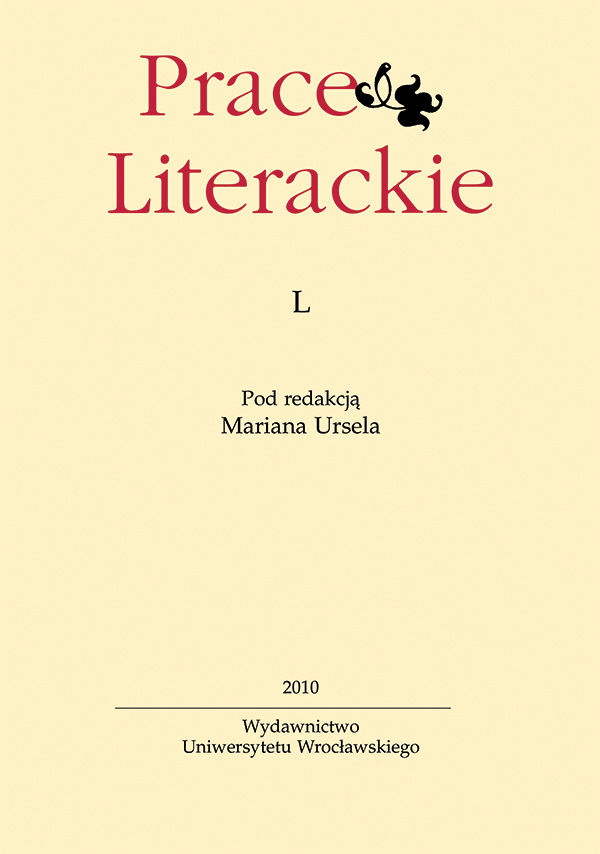

Artykuły

Spatial poetics of the North and the East – Children of the Northern Lights and Where the Witch Flies in a Sandstorm by Anna Onichimowska and Tom Paxal
Children of the Northern Lights and Where the Witch Flies in a Sandstorm by Anna Onichimowska and Tom Paxal build spatial poetics of the North and the East. In both stories space cocreates the plot. It determines the themes and composition of the stories; provides a background, a scenery for the events; influences the fate of the characters; and at the same time it is a “protagonist” of the stories. When we talk about the meaning, space can be a “big metaphor”. In both collections of stories space creates a road symbolism. In the case of “desert stories”, the road symbolizes the search for oneself, while in Children of the Northern Lights it is a determinant, a driving force, a catalyst of adventures of six-year-old twins, becoming a clear equivalent of their emotional states. Beyond the boundaries of a safe home, the mysterious space of nature and its magic influence, inspired by the mythology of the North, become poetic and communicate with the exuberant world of children’s imagination, provoking children’s ordinary curiosity about the world. Space in this case has a much bigger influence on the protagonists’ behaviour than in the “eastern story”. Here the desert is ludic, capricious, funny; it “plays tricks”, it is personified it “sighs” and it “breathes a sigh of relief” but, generally, it is merely an exotic and original place for the protagonists’ journey and it wishes them well. However, in both stories the description of space and its meanings is a pretext for a thorough presentation of the protagonists, who look for their own identity but who eventually return to their safe family home.